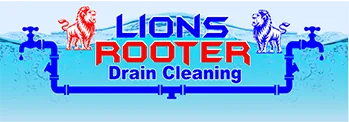Our Blog
Home / Our Blog

Sewer Line Replacement Cost Factors (No Surprises Guide)
When facing sewer line work, homeowners often worry about unexpected expenses. Understanding sewer line replacement cost factors helps avoid surprises and prepares you for informed decisions. Each element, from pipe type to permits, influences the overall investment and project success.
Types of Pipe Materials and Their Cost Implications
Clay pipes: long-lasting but fragile and labor-intensive
Cast iron: durable but prone to corrosion over time
PVC: affordable, lightweight, and commonly used
HDPE: flexible, trenchless-friendly, and resistant to roots
Choosing pipe material impacts installation costs and future maintenance needs. Each option offers advantages and drawbacks, making professional guidance essential.
Factors Influencing Depth of Replacement
Depth significantly affects labor, safety, and equipment requirements. Deeper trenches require more shoring and specialized machinery. Shallow lines may cost less but risk freeze exposure. Depth and accessibility remain crucial sewer line replacement cost factors you must evaluate early.
Accessibility Challenges and Cost Considerations
Landscaping and driveways increase restoration work
Tree roots and utilities complicate digging
Indoor access may require demolition
Trenchless methods reduce disruption but need special tools
Assessing access in advance prevents unexpected labor charges and helps create a clear cost projection.
Impact of Local Regulations on Pricing
Municipal codes dictate pipe material, depth, and inspection requirements. Regulatory demands often increase costs. Understanding these early avoids delays and ensures compliance with all local standards.
Permit Acquisition Process Demystified
Permits are mandatory for excavation and sewer replacement. Contractors usually manage applications, but homeowners should confirm details. Inspections happen during multiple project phases, affecting scheduling and potential rework.
Importance of Professional Assessment in Cost Projections
A professional inspection reveals hidden problems like corrosion or intrusion. This evaluation clarifies options and reduces surprises. Detailed assessments remain one of the most valuable sewer line replacement cost factors.
Understanding Restoration Costs Post-Replacement
Excavation often damages landscaping, hardscaping, or irrigation systems. Restoration brings your property back to normal. Planning for these steps ensures a complete project budget and smoother experience.
Budgeting Tips and Cost-Saving Strategies
Obtain multiple itemized quotes
Consider trenchless methods to reduce surface repair
Schedule during off-peak times
Bundle related projects for potential savings
Clear agreements with your contractor and proactive planning minimize unforeseen costs. Communication is a powerful tool for savings.
Comparing Quotes: What to Look For
Detailed proposals provide clarity. Ensure materials, trenching, restoration, and labor are itemized. Transparent quotes protect you from hidden charges and clarify warranty coverage. Comparing estimates helps you identify trustworthy contractors who address all sewer line replacement cost factors.
FAQs About Sewer Line Replacement Cost Factors
What are the most common cost factors?
Pipe material, depth, accessibility, permits, and restoration needs all affect final investment.
Why does pipe material matter?
Each material varies in cost, durability, and installation complexity, influencing both short-term and long-term expenses.
Do local regulations increase costs?
Yes, codes and inspection requirements often raise expenses, especially with strict environmental protections.
Can trenchless methods reduce costs?
Trenchless techniques minimize surface restoration but require specialized tools and expertise.
Why hire professionals for assessment?
Experts detect hidden problems, provide accurate estimates, and prevent costly surprises.
Ensuring a Transparent and Informed Sewer Line Replacement Experience
Knowing all sewer line replacement cost factors helps plan confidently. Consider regulations, access, restoration, and professional input before starting work. By securing clear estimates and expert guidance, you minimize risks. For personalized help, visit our contact page and speak with our team today.
We Accept Cash, Check, and Credit Card Payments.

@ 2025 - Lions Rooter Drain Cleaning | All Rights Reserved







